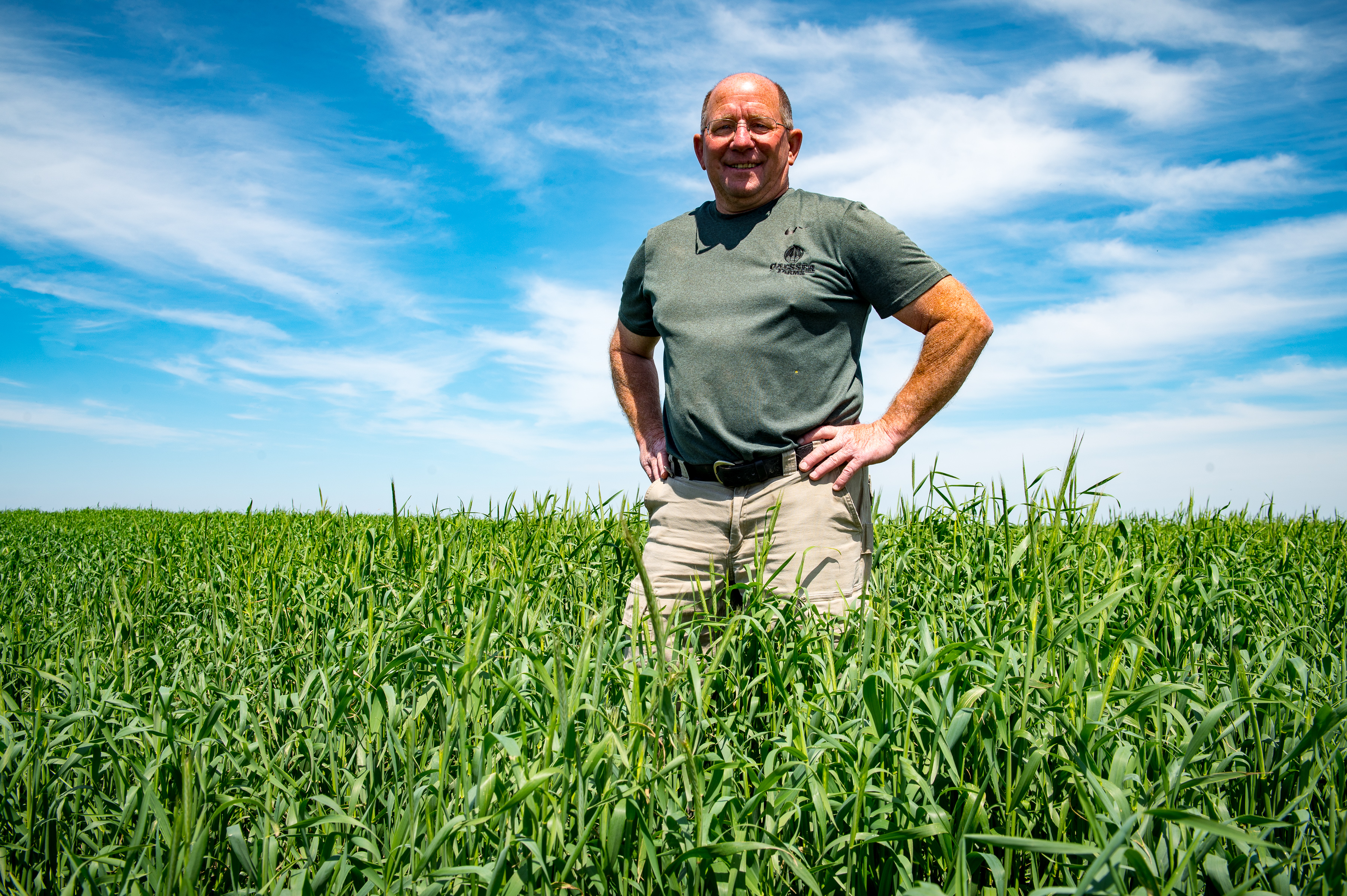
Iowa Soybean Association farmer member Ray Gaesser voiced his support for the Navigable Waters Protection Rule during a hearing Sept. 16, 2020. (Joseph L. Murphy/Iowa Soybean Association)
Water rule provides clarity, ISA member testifies
September 16, 2020 | Bethany Baratta
In his testimony before the U.S. Senate Committee on Environment and Public Works today, former Iowa Soybean Association (ISA) president Ray Gaesser provided his support of the Navigable Waters Protection Rule.
The U.S. Environmental Protection Agency (EPA) and the Department of the Army (Army) published the rule to the Federal Register in April 2020. In it, the agencies clarified the definition of “waters of the United States” under the Clean Water Act while also streamlining the definition to include jurisdictional waters. The Navigable Waters Protection Rule makes clear exclusions for many water features that traditionally have not been regulated.
The final rule, which became effective on June 22, 2020, is an improvement over the 2015 Waters of the United States (WOTUS) rule which made every small wetland, ditch or ephemeral stream on the farm a “regulatory landmine,” said Gaesser, who appeared before the committee virtually from his farm near Corning. “It was an enormous overreach by an administration that prevented me from being able to fully use my land.”
The 2015 WOTUS rule’s broad definition expanded federal jurisdiction far beyond what was authorized by Congress, resulting in burdensome requirements, widespread uncertainty, and legal risk for farmers and ranchers, Gaesser noted. It would have given the federal government jurisdiction over 97% of the land across Iowa.
“The rule was so expansive that farmers would have had to obtain costly permits or pay fines for conducting normal activities like spraying weeds or installing fence,” said Gaesser, who appeared at the request of Senator Joni Ernst.
The Navigable Waters Protection Rule provides “clarity, certainty and commonsense” allowing farmers like the Gaessers the freedom to farm, all while achieving important regulatory oversight, he said.
“This new rule does not change who oversees permanent waterways, such as lakes, rivers and streams,” Gaesser said. “Instead, it ensures that states can enforce their own robust environmental laws to position farmers and rural communities for long-term success. It’s a very reasonable definition of “waters of the U.S.” within the limits set by Congress.”
Back